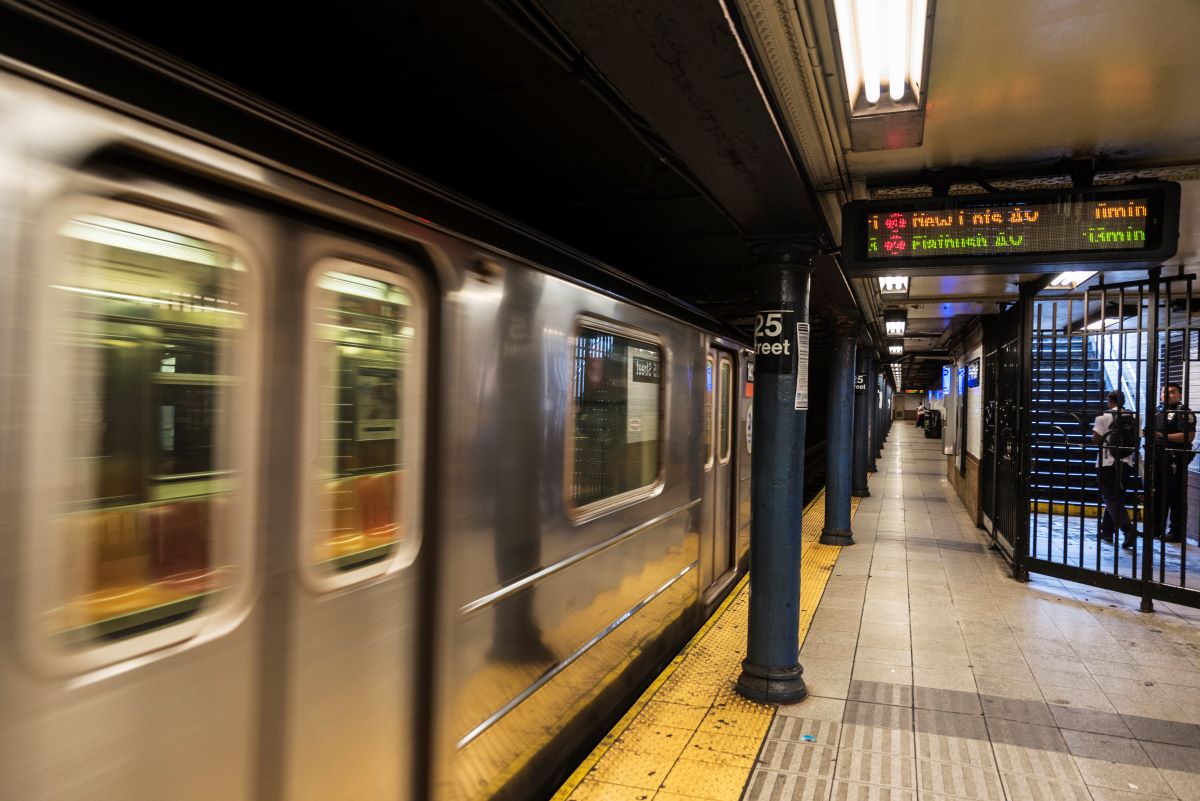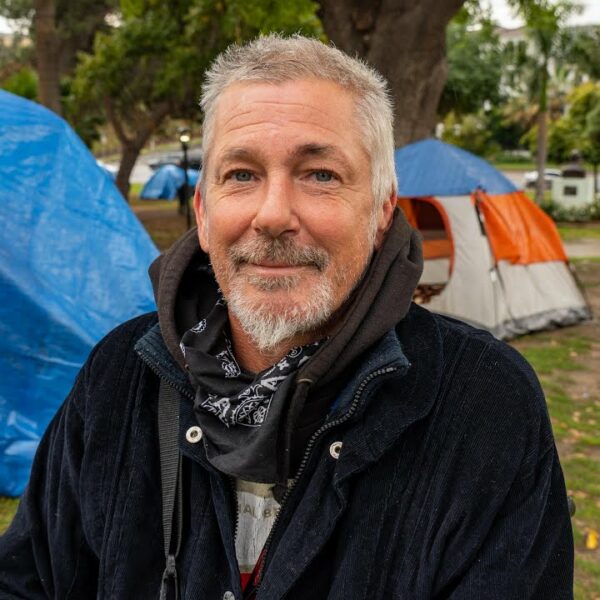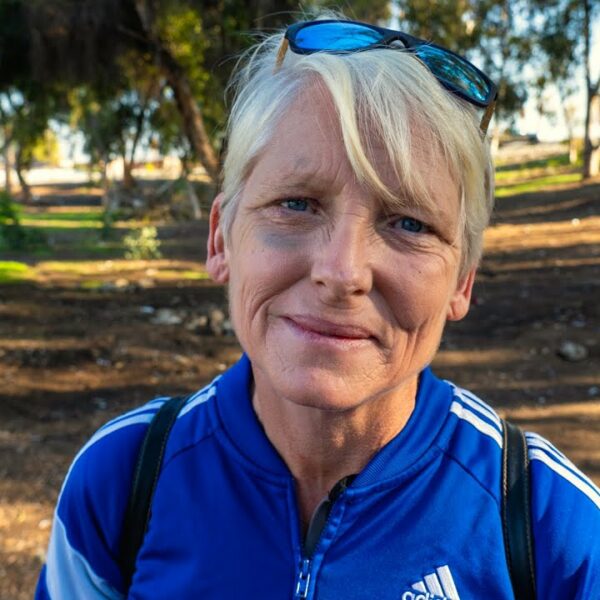Transit Agencies Say Providing Helpful Resources to Homeless People Leads to Better Outcomes than Criminalizing Them
People who have experienced homelessness are familiar with the aggressive actions of policing agencies. These tactics and punitive measures policing agencies rely on have received widespread criticism.
Addressing this issue, researchers from the University of California, Los Angeles (UCLA) published a case study research in 2022, demonstrating that instead of harsh measures against homeless people, developing communication between policing agencies (such as public transit) and social organizations is an effective way to mitigate homelessness.
Researchers asked participants about their agencies’ strategies to deal with unhoused people who stay within and nearby transits. Four strategies their agencies had started implementing were:
- connecting unhoused people with relevant organizations
- the presence of trained professionals, such as social workers and clinicians in transit
- discounted fares
- transportation to shelters
According to the interviewees, all these strategies required collaboration between law enforcement and outreach workers.
Nearly 500,000 people have no choice but to choose bus stops and train stations as their shelter on a given night in the United States. Solving this crisis using coercion and force is not an option. This research aims to examine alternative strategies.
Key Findings: Four Strategies to Respond to Homelessness
Transit agencies developed four strategies to respond to homelessness, which they shared with researchers:
Connecting Unhoused People to Relevant Organizations
Under this strategy, transit agencies would help unhoused people connect with organizations that offer various services to unhoused people. The most successful example of a partnership the research found was between Hub of Hope and the Southeastern Pennsylvania Transportation Authority (SEPTA) in Philadelphia.
Hub of Hope offers hospitality services (showers, laundry, snacks, and meals), substance abuse treatment, and primary medical care to unhoused people whom the transit agencies referred.
Presence of Trained Professionals
Under this strategy, instead of sending police to interact with unhoused people, the agencies send social workers or health professionals so that they can understand and recommend the best resources to help unhoused individuals. The research identified two agencies that have begun implementing this strategy: Sacramento Regional Transit District and Denver Regional Transportation District.
Discounted Fares
This strategy entails a focus on enhancing the mobility of unhoused riders. For this purpose, some transit agencies provide reduced or free fares to assist people experiencing homelessness and enable them to travel on their systems.
According to the research, The King County Department of Metro Transit in Seattle has a Human Services Bus Ticket Program, which sells tickets at a 90% discount to local social organizations addressing homelessness. These social organizations then give their clients free tickets to assist them with their travel needs.
Transportation to Shelters
One of the barriers unhoused people face is that homeless shelters are far away from their current location. Utilizing this strategy, transit agencies will provide free transportation to people experiencing homelessness to reach homeless shelters. New York City Metropolitan Transportation Authority and Wisconsin Metro Transit have started this service within their network.
Transit Agencies Should Adopt Similar Strategies Tailored to Capacity and Responsibilities
The research authors discuss how transit agencies around the United States can adapt similar strategies within their system. The authors recommend that the strategy be tailored to the specific physical and social contexts and each agency’s resource capacity.
For example, large operators in cities or regions where homelessness is concentrated in central spots should adopt the Philadelphia model (similar to the partnership between Hub of Hope & SEPTA). This includes a centrally located hub that offers medical and hospitable services to unhoused people. The presence of trained professionals may be more suitable for areas experiencing a dispersion of homelessness throughout the city.
One key recommendation from researchers: recruit trained civilians to help unhoused individuals instead of law enforcement officers except for extreme cases. Trained professionals have the knowledge and resources to help unhoused individuals. More importantly, they will not use any form of aggressive tactics.
Two real examples include Seattle’s approach during the COVID crisis and Denver’s Street Enforcement Team.
Seattle opted against arresting people for minor crimes and closed down aggregate homeless shelters. Instead, local business owners contacted professional outreach workers if they met an unhoused person who needed help. The result was better outcomes when outreach workers were involved instead of police officers.
Denver chose to expand its Street Enforcement Team (SET), a civilian-led group that addressed homelessness on the streets and helped unhoused people quickly connect to services and shelters.
Humanely Addressing Homelessness Instead of ‘Being Tough’
Research like this indicates that a transformation can occur within American institutions. Instead of criminalizing homelessness, we can provide homeless people with better opportunities to escape it. American institutions should experiment more with policies and programs that improve the lives of unhoused people instead of “being tough on crime.”
Noam Chomsky, one of the greatest thinkers of the 20th century, has said that America is the only developed country that does not see crime as an indication of a larger problem within society that needs to be solved. Instead, we view it as something separate that must be dealt with harshly. The result is political campaigns emphasizing who will be stricter with a crime.
Homelessness is not a crime. However, the “being tough on crime” mentality has led American lawmakers for several decades to assume that homelessness is a crime and therefore needs to be criminalized. Due to this, there has been a significant trend of criminalizing homelessness. We must change the narrative. Society is already failing these individuals by allowing them to live in poverty on the streets.













